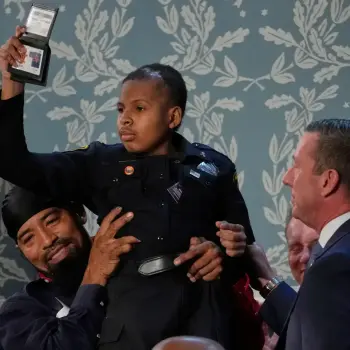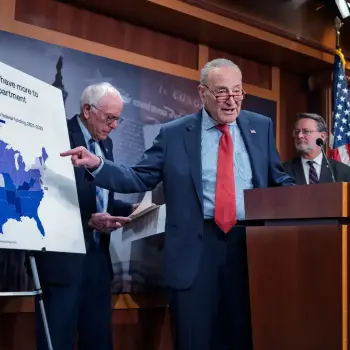NOTE: The Syrian government fell yesterday, ending the fifty-year rule of the Assad family. As more is known, I will be responding later this morning with a Daily Article Special Edition after this article on Notre Dame Cathedral. For a biblical perspective on Syria’s ongoing crisis, see Dr. Ryan Denison’s Friday Daily Article, “Civil war in Syria escalates as rebels take Hama.”
President-elect Donald Trump joined America’s First Lady Jill Biden, Britain’s Prince William, Ukrainian President Volodymyr Zelenskyy, and French President Emmanuel Macron on Saturday to formally reopen the Notre Dame Cathedral in Paris.
The five-year restoration has been beset with controversies, but the cathedral is ready to resume its status as a symbol of “the spirit of Paris,” the site of notable coronations (including that of Emperor Napoleon), and “a monument to the highest aspirations of artistic achievement that transcends religion and time.”
The last description caught my attention: Doesn’t it seem paradoxical for a church building to “transcend” religion?
And yet, this disconnect between places of worship and acts of worship is happening with great cathedrals all across Europe. I have attended services in England where the choir outnumbered the congregation and visited beautiful historic churches in Germany and Switzerland where only a handful worship on Sunday. Many European churches are being repurposed into hotels, rock-climbing businesses, dance halls, and even Muslim mosques.
When 60 Minutes recently reported on Notre Dame’s reconstruction, there was virtually no reference to the structure as a place of worship. Since less than 2 percent of people in France attend Sunday mass and only 44 percent of the population even believe in God, this is less surprising than it might at first appear.
Of course, this pattern is by no means confined to France. Secularism is advancing across Europe and America; by one estimate, as many as one hundred thousand churches in the US will likely close in the next few decades.
A barking dog and the Great Commandments
I was recently walking past a neighbor’s backyard when their dog began barking at me while rushing to the fence that separated us. This happens every time I walk past this yard. Other dogs in other yards on my walking path do the same thing. If I could speak canine, perhaps I could convince these animals that I am no threat to their domains and this is therefore an unnecessary effort on their part.
Then the thought occurred to me: They are simply doing what they were made to do. So are the trees that tower around me and the turtles floating in the lake before me and the birds flying in the skies above me.
The only part of God’s creation that does not habitually do what it was created to do is me. And you.
What were we made to do?
Jesus’ Great Commandments are a good place to start, calling us to love our Lord and love our neighbor as unconditionally as we love ourselves (Mark 12:29–31).
Jesus’ sinless example is another (Hebrews 4:15): He did just this in all he did.
My personal experience is yet another: In the days I spend loving God and others, I feel myself to be whole and at peace. Otherwise, my Augustinian heart is “restless until it rests in him.”
Serving my friend so he will serve me
Why is it so hard for me to remember this simple truth? It is not as if it is hidden in Scripture or opaque to my daily experience. The obvious answer, at least for me, is that I don’t want to.
I want to love myself. And when my sinful heart senses a competition between what it wants and what loving God and others entails, my sinful heart all too often wins.
On my better days, I recognize this destructive pattern and admit its fruitless and fallacious nature. In truth, the best thing I can do for myself is to spend myself loving God and others. This, as I just noted, is the path to my best, most fulfilling life.
The problem is that when I love God and others as a means to loving and serving myself, I am not truly and unconditionally loving God and others.
And so I conclude that C. S. Lewis was right: it is better to forget about myself altogether.
It helps to see this paradoxical pattern in other dimensions of life. Serving my friend so he will serve me is not truly serving him and is therefore unlikely to engender his service in response. Even serving my health as an end rather than a means is unhealthy, provoking stress over calories, workout regimens, and weight that is damaging to my well-being.
So in life itself, as Jesus said, “Whoever would save his life will lose it, but whoever loses his life for my sake will find it” (Matthew 16:25).
Why you are reading this article
How does this help us respond to declining religiosity in the secularized Western world?
The answer is found at the Christmas manger. Here Bethlehem shepherds personally encountered the infant Christ (Luke 2:16) and immediately “made known the saying that had been told them concerning this child” (v. 17). When they met the living Lord Jesus, they could not help but tell their world. They became the first evangelists and missionaries in Christian history.
What happened at the first Christmas can happen again this Christmas. When we truly, intimately, passionately love our Lord, we must love our neighbor. And no matter how secularized our culture and how empty our cathedrals, hearts hungry for such love will respond.
You are reading this article because many years ago, I encountered a group of Christians who deeply and genuinely loved Jesus and each other. I wanted to experience such love personally.
I still do.
Don’t you?
Monday news to know:
- NYPD releases 2 new photos of man sought in killing of UnitedHealthcare CEO
- South Korea’s ex-defense chief is detained over martial law episode
- “Wizard of Oz” ruby slippers sell at auction for a record $28 million
- Juan Soto reportedly breaks Shohei Ohtani’s record with monster $765 deal with Mets
- On this day in 1990: Lech Walesa elected president of Poland
*Denison Forum does not necessarily endorse the views expressed in these stories.
Quote for the day:
“Jesus is the God whom we can approach without pride and before whom we can humble ourselves without despair.” —Blaise Pascal












